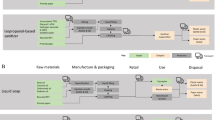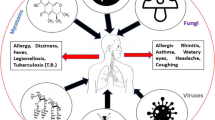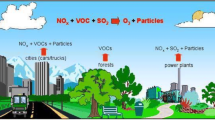Abstract
Max von Pettenkofer (1818–1901) belonged to the scientific elite of the 19th century. With his stringent search for the laws of nature and his fight for scientific truth, Pettenkofer was the prototype of a modern researcher. In the field of hygiene, he sought ways and means of preserving health and preventing sickness. With his consistent application of the experimental method to the field of public health, Pettenkofer helped the discipline of hygiene to provide precise and reliable answers to sanitary questions. In his experimental work on hygiene, Pettenkofer sought an answer to every imaginable question concerning the connection between the human organism and its environment.
To proceed in this direction, Pettenkofer combined medical expertise with physics, chemistry, technique and statistics. This even today modern “crossover-thinking” made hygiene to the first interdisciplinary medical field. With his Institute of Hygiene, Pettenkofer established 1879 the first centre of competence for hygiene and environment in the world, opening a new era of environmental observation.
In the framework of hygiene, Pettenkofer turned also to questions of nutrition and the quality of foodstuff. The science of hygiene owes to Max von Pettenkofer not only its development and cartography, but also its introduction as an academic discipline. Finally he regarded hygiene also as an economic and cultural feature. His idea about a clean soil in the cities and his promotion of adequate water supply and sufficient sewage networks are linked to his theory of the cholera. Pettenkofer believed that a battle against this epidemic could be won.
Similar content being viewed by others
References
Locher WG. Max von Pettenkofer—Life stations of a genius. On the 100th anniversary of his death (February 9, 1901). Int J Hyg Environ Health. 2001;203:379–391.
Voit C v. Max von Pettenkofer zum Gedächtnis. München: Kgl. Bayer. Akademie der Wissenschaften; 1902.
Beyer A. Max von Pettenkofer. Berlin: VEB; 1956.
Pettenkofer M v. Ueber das Studium der Medicinal-Policei an den Universitäten. München: J. Rösl; 1863.
Wieninger K. Max von Pettenkofer. Das Leben eines Wohltäters. München: Hugendubel; 1987. Translation into Japanese by A. Ueki. Tokyo; 2007.
Pettenkofer M v. Beziehungen der Luft zu Kleidung, Wohnung und Boden. Braunschweig: Vieweg; 1872.
Pettenkofer M v. Zum gegenwärtigen Stand der Cholerafrage. München, Leipzig: Oldenbourg; 1887.
Locher WG, Unschuld PU. Geschichtliches zur Umweltmedizin. In: Wichmann HE, Schlipköter HW, Füllgraff G editors. Handbuch der Umweltmedizin. Landsberg: ecomed Verlag; 2000. Vol. 1 p. 1–11.
Pettenkofer M v. Ueber die Funktion der Kleider. Z Biol. 1865;1:180–194.
Kaupp J. Der sozialhygienische Unterricht an der Universität München und die Errichtung eines sozialhygienischen Seminars. Münch med Wschr. 1914;61:932–935.
100 Jahre Lehrstuhl für Hygiene an der Ludwig-Maximilians-Universität München. München: Werk-Verlag Dr. Banaschewski; 1965.
Pettenkofer M v. Das Hygienische Institut der königl. bayer. Ludwigs-Maximilians-Universität München. Braunschweig: Vieweg; 1882.
Fee E. Disease and Discovery A. History of the Johns Hopkins School of Hygiene and Public Health 1916–1939. Baltimore: Johns Hopkins Univ. Press; 1987.
Hessler W. Briefwechsel (correspondence) Pettenkofers. Typoscript. Institute for the History of Medicine, Munich).
Tsuboi J. Untersuchungen über die natürliche Ventilation in einigen Gebäuden in München. Arch f Hyg. 1893;17:665–676.
Wikipedia: Mori Ogai.
Pettenkofer M v. Ueber den hygienischen Wert von Pflanzen und Pflanzungen im Zimmer und im Freien. Braunschweig: Vieweg; 1877.
Evans AS. Pettenkofer Revisited. The life and contributions of Max von Pettenkofer (1818–1901). Yale Journal of Biology and Medicine. 1973;46:161–176.
LaBerge AF. Mission and method: The early nineteenthcentury French public health movement. Cambridge, New York: Cambridge Univ. Press; 1992.
Ramsey M. Public Health in France. In: Porter D editor. The History of Public Health and the Modern State. Amsterdam: Editions Rodopi B. V.; 1994, p. 45–118.
Hamlin C. State Medicine in Great Britain. In: Porter D editor. The History of Public Health and the Modern State. Amsterdam: Editions Rodopi B.V.; 1994. p. 132–164.
Ashton J. The health of towns and cities. Health Visitor. 1990;63:413–415.
Pettenkofer M v. Über den Werth der Gesundheit für eine Stadt. Braunschweig: Vieweg; 1873.
Pettenkofer M v. Über den Luftwechsel in Wohngebäuden. München: I.G. Cotta; 1858.
Liese W. Nachdenkliches zur “Pettenkoferzahl”. Haustechnik-Bauphysik-Umwelttechnik-Gesundheitsingenieur. 1980;101:319.
Loewer H. Die Raumluftqualität in der Raumlufttechaik. Clima Commeroe International. 1991—Special issue.
Pettenkofer M v. Die Cholera. Breslau, Berlin: Schottlaender; 1894.
Pettenkofer M v. Untersuchungen und Beobachtungen über die Verbreitungsart der Cholera nebst Betrachtungen über Maßregeln, derselben Einhalt zu thun. München: I. G. Cotta; 1855.
Locher WG. Pettenkofer and Epidemiology. Erroneous Concepts—Beneficial Results. In: Kawakita Y, Sakai S, Otsuka Y editors. History of Epidemiology. Proceedings of the 13th International Symposium on the Comparative History of Medicine—East and West 1988. Tokyo: Ishiyaku Publishers; 1993. p. 93–120.
Locher WG. Max von Pettenkofers Einfluss auf die Militärhygiene. In: Goerke H editor. Militärsanitätsdienst in drei Jahrhunderten. (Beiträge Wehrmedizin und Wehrpharmazie 12). Bonn: Beta Verlag; 1997. p. 40–50.
Müller F v. Die Entwicklung der Stoffwechsellehre und die Münchener Schule. Münch med Wschr. 1993;80:1656–1665.
Pettenkofer M v. Ueber einen neuen Respirations-Apparat. München: Kgl. Bayer. Akademie der Wissenschaften; 1861.
Locher WG. Die Pettenkofersche Röhre zur CO2-Messung. Jahrbuch Deutsches Medizinhistorisches Museum. 1988;5: 110–128.
Pettenkofer M v. Voit C. Untersuchungen über den Stoffverbrauch des normalen Menschen. Z Biol. 1866;2:489–494.
Wagner D. Pettenkofers Beitrag zur Popularisierung hygienisch-wissenschaftlicher Erkenntnisse. Schriftenr Gesch Naturwiss, Technik. Med. 1976;13:81–85.
Pettenkofer M v. Vorträge über Canalisation und Abfuhr. München: Finsterlin; 1876.
Pettenkofer M v. Was ist und was will “Gesundheitslehre”? Die Gartenlaube 1878;328–329.
Pettenkofer M v. Die Cholera in Indien. Supplement of Allgemeine Zeitung. München 1885;9, ed. 5:1393–1395.
Pettenkofer M v. München—eine gesunde Stadt. Special issue of “Wissenschaftliche Rundschau” of Münchner Neueste Nachrichten 1889.
Pettenkofer M v. M. Cholera. Lancet. 1884;2:769–771, 816–819, 861–864, 904–905, 992–994, 1042–1043, 1086–1088.
Ackerknecht E. Anticontagionism between 1821 and 1867. Bull Hist Med. 1948;22:562–593.
Hume EE. Max von Pettenkofer’s theory of the etiology of cholare, typhoid fever and other intestinal diseases. Ann Med Hist. 1925;7:319–353.
Evans RJ. Death in Hamburg. Oxford: clarendon Press; 1987.
Pettenkofer M v. Die Chemie in ihrem Verhältnis zur Physiologie und Pathologie. München: I. Georg Weiss; 1848.
Pettenkofer M v. Über Cholera, mit Berücksichtigung der jüngsten Cholera-Epidemie in Hamburg. Münch med Wschr. 1892;39:807–817.
Kißkalt, Karl: Max von Pettenkofer. Gedächtnisrede zur Feier seines 125. Geburtstages. Bayerische Akademie der Wissenschaften: München 1944.
Pettenkofer M v. Wodurch die humanistischen Gymnasien für die Universität vorbereiten. München: I. G. Weiss; 1869.
Pettenkofer M v. Rerum cognoscere causas. München: Kgl. Bayer. Akademie der Wissenschaften; 1890.
Author information
Authors and Affiliations
Corresponding author
Additional information
In this respect we have to mention for example J. Forster in Amsterdam and later in Strassburg, Fr. Hofmann in Leipzig, K.B. Lehmann in Würzburg, Wolffhügel in Göttingen and M. Rubner in Marburg and Berlin. In foreign countries we have to refer to Isidor Soyka (Prague) or von Fodor (Budapest). Bubnoff (Moskow) and Subottin (Kiew). In Japan, Ogata, Tsuboi and Nakahama were responsible for spreading Max von Pettenkofer’s ideas and became members of the University of Tokyo.
Rights and permissions
About this article
Cite this article
Locher, W.G. Max von Pettenkofer (1818–1901) as a pioneer of modern hygiene and preventive medicine. Environ Health Prev Med 12, 238–245 (2007). https://doi.org/10.1007/BF02898030
Received:
Accepted:
Issue Date:
DOI: https://doi.org/10.1007/BF02898030




